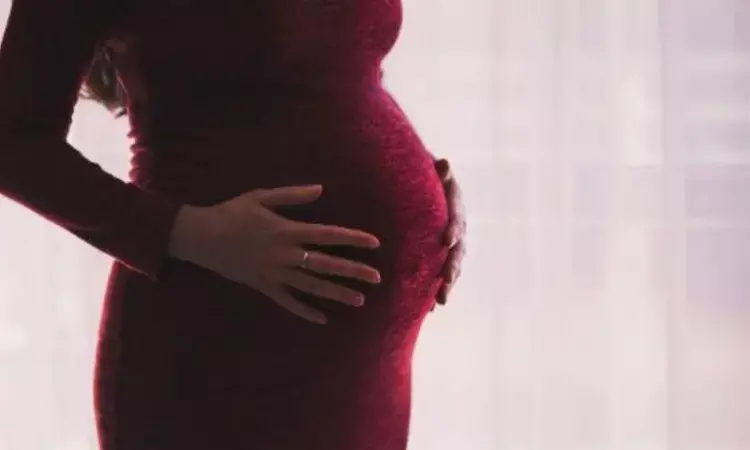- Home
- Medical news & Guidelines
- Anesthesiology
- Cardiology and CTVS
- Critical Care
- Dentistry
- Dermatology
- Diabetes and Endocrinology
- ENT
- Gastroenterology
- Medicine
- Nephrology
- Neurology
- Obstretics-Gynaecology
- Oncology
- Ophthalmology
- Orthopaedics
- Pediatrics-Neonatology
- Psychiatry
- Pulmonology
- Radiology
- Surgery
- Urology
- Laboratory Medicine
- Diet
- Nursing
- Paramedical
- Physiotherapy
- Health news
- Fact Check
- Bone Health Fact Check
- Brain Health Fact Check
- Cancer Related Fact Check
- Child Care Fact Check
- Dental and oral health fact check
- Diabetes and metabolic health fact check
- Diet and Nutrition Fact Check
- Eye and ENT Care Fact Check
- Fitness fact check
- Gut health fact check
- Heart health fact check
- Kidney health fact check
- Medical education fact check
- Men's health fact check
- Respiratory fact check
- Skin and hair care fact check
- Vaccine and Immunization fact check
- Women's health fact check
- AYUSH
- State News
- Andaman and Nicobar Islands
- Andhra Pradesh
- Arunachal Pradesh
- Assam
- Bihar
- Chandigarh
- Chattisgarh
- Dadra and Nagar Haveli
- Daman and Diu
- Delhi
- Goa
- Gujarat
- Haryana
- Himachal Pradesh
- Jammu & Kashmir
- Jharkhand
- Karnataka
- Kerala
- Ladakh
- Lakshadweep
- Madhya Pradesh
- Maharashtra
- Manipur
- Meghalaya
- Mizoram
- Nagaland
- Odisha
- Puducherry
- Punjab
- Rajasthan
- Sikkim
- Tamil Nadu
- Telangana
- Tripura
- Uttar Pradesh
- Uttrakhand
- West Bengal
- Medical Education
- Industry
Childhood trauma may heighten subsequent risk of pregnancy complications

Childhood trauma, such abuse, emotional neglect, and exposure to domestic violence, may heighten a woman's subsequent risk of pregnancy complications, and of giving birth to a low birthweight or premature baby, finds a pooled data analysis of the available evidence, published in the open access journal BMJ Open.
The risks of pregnancy related diabetes, high blood pressure, depression/anxiety and of giving birth to underweight and or premature babies may all be significantly higher, the analysis suggests.
While previously published research suggests that early life trauma can have a major negative impact on health in adulthood, it’s not clear if this extends to pregnancy.
To explore this further, the researchers reviewed 32 relevant studies, published between 1994 and 2022. Three out of 4 were long term (cohort) studies, with the remainder observational or comparative (case-control) studies.
Most (19) were carried out in the USA. The rest were from Canada (3), Europe (6), and other regions (4). Study participants ranged in number from 48 to 11,556.
Pooled data analysis of 21 studies showed that, overall, women who had experienced some form of childhood trauma were 37% more likely to have pregnancy complications than those who hadn’t. They were also 31% more likely to give birth to underweight or premature babies.
Further in-depth analysis showed that childhood trauma was associated with a 39% heightened risk of pregnancy related diabetes, a 59% heightened risk of antenatal depression, a 27% heightened risk of giving birth to an underweight baby, and a 41% heightened risk of preterm delivery.
There could be several direct and indirect explanations for the findings, suggest the researchers.
Childhood trauma might alter regulation of stress signalling pathways and immune system function; it might also change brain structure and function; or it might speed up cellular ageing, they say.
And previously published research suggests that it’s also associated with a greater likelihood of risky behaviours in adulthood, including substance misuse, physical inactivity, and poor diet, all of which may influence the risk of pregnancy complications and outcomes.
The researchers acknowledge that most of the included studies were from high income western countries so the findings may not generalisable elsewhere, nor were they able to assess the potential impact of different types of childhood trauma.
But they nevertheless conclude: “The results suggest that exposure to [childhood trauma] increases the risk of pregnancy complications and adverse pregnancy outcomes. The identification of women exposed to [these experiences] and personalising their care may provide opportunities to improve maternal and child mental and physical health.”
And they emphasise: “Beyond screening for [childhood trauma], our findings emphasise the importance of preventing [these events] in children to reduce immediate impacts as well as intergenerational transmission.”
Reference:
Mamun A, Biswas T, Scott J, et alAdverse childhood experiences, the risk of pregnancy complications and adverse pregnancy outcomes: a systematic review and meta-analysisBMJ Open 2023;13:e063826. doi: 10.1136/bmjopen-2022-063826.
Dr Kamal Kant Kohli-MBBS, DTCD- a chest specialist with more than 30 years of practice and a flair for writing clinical articles, Dr Kamal Kant Kohli joined Medical Dialogues as a Chief Editor of Medical News. Besides writing articles, as an editor, he proofreads and verifies all the medical content published on Medical Dialogues including those coming from journals, studies,medical conferences,guidelines etc. Email: drkohli@medicaldialogues.in. Contact no. 011-43720751


